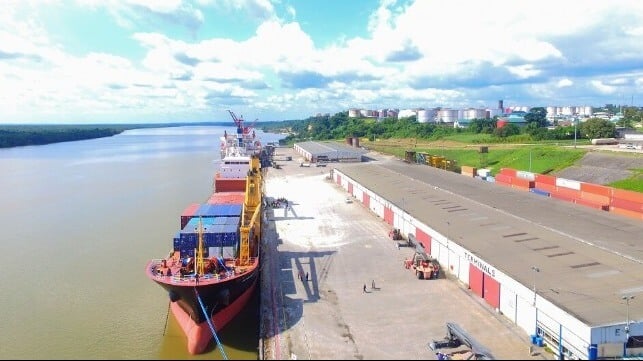Nigeria's Calabar Port Hasn't Received a Large Container Ship in 25 Years

With Nigeria considered Africa’s largest economy, it goes without saying that its maritime sector has to play a substantial role in facilitating the country’s trade. Unfortunately, Nigeria’s maritime sector - especially the public-owned port system - continues to reel under decades of neglect and under-investment. This stark reality became once again evident last week during a parliamentary visit to Calabar Port by the House of Representatives’ Committee on Ports and Harbors.
During the inspection tour, the Calabar Port Manager Olumati Festus said that the port complex had not received a single containership in the last 25 years, according to a report by the state-owned News Agency of Nigeria (NAN).
Festus blamed the situation on the port’s entry channel, which has not been dredged in years, limiting the access of bigger vessels. In addition, the access road to Calabar Port is in a deplorable condition. In some instances, moving cargo from the port to nearby towns, approximately 65 miles apart, could take four to five hours.
Located in the south-eastern part of Nigeria, Calabar port primarily serves the oil and gas industry but has massive potential to develop into a container hub. It is the closest port to 16 of Nigeria’s Northeast states. It is also strategically located to serve as a gateway to the landlocked country of Niger, as Calabar is closer to Niger than the port of Cotonou in Benin, which handles most of its cargo. However, inefficiencies in cargo evacuation from the port means Northeast region cargo owners have to endure the long trip to the Lagos port complex, which is currently at capacity.

that matters most
Get the latest maritime news delivered to your inbox daily.
“The cost and inconvenience endured by importers in these regions to retrieve containers from Lagos underscore the potential gains of investing in Calabar port,” Dayo Balogun, Director of ECM Terminals based at the port, recently told local media. Other port stakeholders have lobbied government to build a railway connection to the facility for ease in cargo evacuation.
Last month, the Nigerian Ports Authority announced a massive rehabilitation effort for the country’s major ports to the tune of $1 billion. Calabar is one of the ports targeted under this reconstruction effort.
